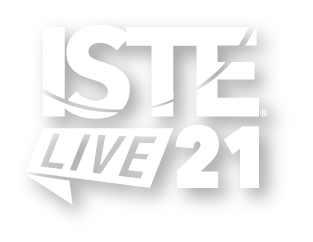

'He Waka Eke Noa' — We Are All in This Together |
Participate and share : Poster
Michael Davidson
"He waka eke noa" is emblazoned outside of Matua Ngaru School. We have been on a journey to give back ownership of learning to our learners. Come and learn about the successes and failures we have had on the road to empowering the children that walk through our doors everyday.
| Audience: | Curriculum/district specialists, Principals/head teachers, Teachers |
| Skill level: | Beginner |
| Attendee devices: | Devices useful |
| Attendee device specification: | Smartphone: Android, iOS, Windows Laptop: Mac, PC, Chromebook Tablet: Android, iOS, Windows |
| Participant accounts, software and other materials: | I'll be sharing Google Slides for this session. If you want to make a copy of them, you will require a G Suite account. It is not necessary though. |
| Topic: | Innovative learning environments |
| Grade level: | PK-12 |
| ISTE Standards: | For Educators: Facilitator
Empowered Learner
|
Matua Ngaru School opened in February 2019. We have four large spaces each built with an intended capacity of 140 learners in each space. We started small but are growing rapidly (When we opened we had a total of 120 learners, now, less than two years later, we are at 300). Our challenge was to make these spaces work with a diverse range of learners. As a new school we have had to group all of our Year 4s - Year 8s (8 year olds to 13 year olds) in one big space. Our current numbers in this space are approximately 100 learners and 7 adults (who are in at different times). We wanted this space to work for us and for the children; to be able to cater for every individual need in the room, and give a voice to each and every learner and to empower them to see their education as something that they can control and mould in a way that works for them.
We tried many different things in the first year and a half, but after our first COVID lockdown we put a variety of systems and tools in place in an effort to move us and our learners towards our ultimate goal of fully empowered learners. Behind the scenes we have used a variety of G Suite tools to organize our selves and how we divide the learners at different times of the day. We have had our learners create personalized, weekly timetables to get them used to taking control of their learning. Google Classroom as proved super helpful in making sure that 7 adults (more when you count school leaders) have easy access to all work that our learners use. We are also using a platform called Hero to track individual progress of our school's (and NZ's) curriculum progressions. This same platform allows our learners to reflect on their learning, share evidence of it and to tag their posts with the relevant learning outcomes - all of which is shared with the students whanau (family). We also use a variety of tools to make sure all of our learners have a voice (Flipgrid), a strong computational thinking basis (Scratch, CoSpaces) and have options to be creative, both digitally and in the physical world (Pixton, Drawing apps, Sketchnoting lessons, using EPro8 (engineering) equipment and robotics (Sphero, Lego EV3)).
We have been working to give power back to our learners in a variety of ways:
1) Choice in topic/questions they pursue. We allow them to choose their topics and genres for writing, the books they read for reading, the questions they pursue for their inquiries, the STEAM sessions they attend, among many other things.
2) Flexible grouping. We mix the learners up in a way that supports all learners. We do not group by 'ability' or past achievement, but put them in mixed groups so that they have diverse viewpoints in groups. We are working towards allowing more choice in groupings in the future, though in some cases this will need to be scaffolded.
3) Reflection and self assessment. We are working towards developing robust reflections and self assessments for all work we do in our space. We have begun to get our learners to self-assess against rubrics for their work and to justify why they are giving themselves those levels of achievement.
4) PB4L (Positive Behaviour for Learning). We focus on behaviour as a learned activity. We use warm chats and restorative conversations when things don't go right with behaviour. Our focus is not on punishing but on learning. We want all of our learners to feel safe in our space so that they can learn. We also spend time teaching specific learning behaviours that we want to see in our learners in across-school groups (which include 5 year olds to 13 year olds).
5) Hauora (Wellbeing). We dedicate time every day to working on our wellbeing. Whether it is learning about ourselves and others, to practising mindfulness and tuakana-teina (older learners working with younger learners) to writing in gratitude journals weekly.
6) The learning space. We have a large learning space with a variety of settings in it. We are continually working to make these settings enhance the learning as much as possible. This includes signage, reference material and learner work on the walls, using different spaces for different things (eg large group hui (meetings), independent work, group work, direct acts of teaching, STEAM sessions, cooking, sewing, etc) and using our educators effectively.
7) Learning through Play. This is an important aspect at our school. We want our learners to explore, collaborate and have fun at school. We value this from our 5 year olds to our 13 year olds, though we also know it looks very different between those two groups.
8) A Licensing system, whereby learners who show responsibility and independence in their learning get more chances to wield that power. For example our learners who are Coastguards have more say in their timetables and where they work, while our Day Skippers get more support from our adults to make those choices.
At present, the bulk of the evidence that this is working is anecdotal (as we are constantly getting new learners, so actual data tracking is tricky AND we have been open less than 2 years, so there is no historical data to compare to). However, that anecdotal evidence is overwhelmingly positive. Though it has been a difficult year for our learners (and everyone!) they have adapted very quickly and have been using their timetables. The space we work in has gone from chaotic and loud to much more focused and calm (with a nice buzzing feeling). Learners are speaking up more and many are showing an increase in confidence. They vast majority are happy to be at school every day and are frequently asking to continue to work over lunch time. They are frequently sharing their voices and involving themselves in solving collective problems.
The learning outcomes for this session would be that attendees will:
1) Identify various ways in which they can empower their learners to have ownership of their learning
2) Identify technologies that can assist them in this endeavour (and how those technologies can do so)
3) Reflect on their own practice and see the value in giving learners agency over their learning
4) Define what agency in a classroom means
https://nzcurriculum.tki.org.nz/Curriculum-resources/NZC-Online-blog/Learner-agency#:~:text=Students%20have%20a%20sense%20of,sense%20for%20learners%20to%20develop.&text=%E2%80%9CStudents%20must%20develop%20the%20capacity,without%20waiting%20to%20be%20directed.
https://core-ed.org/research-and-innovation/ten-trends/2014/learner-agency/
https://theeducationhub.org.nz/agency/

A Canadian living and teaching in New Zealand, Michael is a Google Certified Innovator and has been a Coach and Mentor to other Innovators. Also a Google Certified Trainer, he works at the recently opened Matua Ngaru School in Auckland teaching STEAM to every learner.
Camp OBLN: A Compass for Online Learning
Cultivating Environmental Sustainability Within Classroom Makerspaces
Ideas for Establishing Classroom Culture Within Your Learning Environment and Beyond